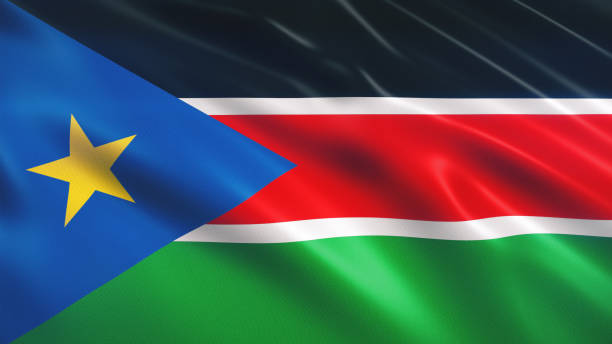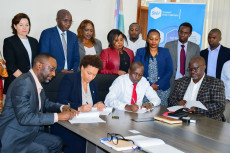- South Sudan which got independence in 2011 has faced a challenging journey towards exercising their democratic rights.
- After postponing of the elections, the government extended Salva Kiir’s term by three more years upto July 2018. As a result, the people of South Sudan were frustrated .
South Sudan, which gained independence in 2011, has faced a challenging journey in exercising its democratic rights.
Political instability and economic hardship have led to outbreaks of civil war, making it difficult to conduct elections. The first general elections, initially scheduled for July 2015, did not take place.
This was due to a political dispute between President Salva Kiir and former Vice President Riek Machar, who now leads the opposition. The conflict quickly took on ethnic dimensions, resulting in the loss of many lives and widespread displacement.
Following the postponement of elections, the government extended President Kiir’s term by three years, up to July 2018. This move deeply frustrated the South Sudanese people. The opposition condemned it as unconstitutional, claiming it denied citizens their right to vote.
As time passed, many South Sudanese once again clung to the hope of peaceful democratic elections, similar to those occurring in more stable neighboring countries. In an effort to end years of civil war and political gridlock, President Kiir and opposition leader Machar resumed peace negotiations.
Their efforts culminated in the signing of the Revitalized Agreement on the Resolution of the Conflict in the Republic of South Sudan (R-ARCSS)in September 2018.
The agreement aimed to permanently halt hostilities, restore political stability, and establish a transitional government that would ultimately lead to democratic elections. Once again, many citizens hoped for peaceful, credible elections.
Despite this milestone, elections could not be held due to a combination of complex challenges. The country had only recently emerged from a devastating conflict that began in 2013, leaving behind deep political, ethnic, and social divisions.
Additionally, key transitional tasks remained unfinished. These included forming a new unity government, restructuring a divided national army, and drafting a permanent constitution.
Large parts of the country also remained insecure and volatile, making nationwide elections logistically difficult and dangerous. Concerns grew that some political leaders were unwilling to relinquish power, further delaying critical aspects of the peace agreement.
In February 2020, a coalition government was formed under the Revitalized Peace Agreement, tasked with steering the country toward democratic elections originally scheduled for 2023. However, continued political disagreements, slow reform implementation, and logistical setbacks pushed the elections to 2024.
In 2024, the elections were again postponed to December 2026, primarily due to delays in key preparatory tasks such as the national census, the drafting of a permanent constitution, and the registration of political parties and voters—each essential for a transparent electoral process.
Compounding these challenges, South Sudan’s struggling economy made election planning even more difficult. The nation faces high inflation, widespread poverty, and heavy reliance on oil revenue, leaving the transitional government without sufficient funds to support the electoral process.
As 2026 approaches, all eyes are on South Sudan’s scheduled elections. The outcome will test the country’s ability to achieve lasting peace and democratic governance.
Both internal and external pressure continues to mount on the transitional government to deliver the long-promised elections. While officials have assured the public that elections will be held, the obstacles that delayed the 2024 polls remain unresolved.
Essential tasks—such as the national census, constitutional reforms, voter registration, and security arrangements—are still incomplete. Consequently, the likelihood of successfully conducting elections in December 2026 remains uncertain.
Peace and security in South Sudan are still fragile, with sporadic violence and political tensions prevalent in several regions. Unless these systemic and security challenges are urgently addressed, further delays beyond 2026 remain a serious risk—casting doubt on the country’s path toward democratic transition.




-1772102940-md.jpg)


-1772090413-1772095461-md.jpg)


-1772102940-sm.jpg)

